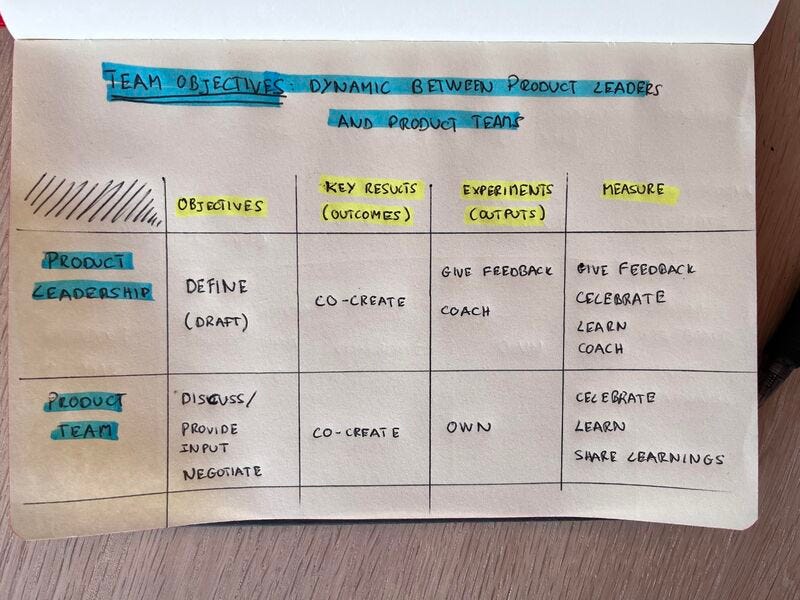Assigning objectives to product teams should feel like a negotiation, not a one-way directive.
It’s healthy when product teams ask critical questions, suggest alternatives to the goals, and request more context.
It’s a sign that:
👉 There’s psychological safety
👉 The team is empowered and feels ownership of what they’re doing
👉 Understand their context
👉 And is senior enough to remain critical and push back with evidence on what they think is truly important
Product leaders need to ensure that there’s a Product Strategy and a clear narrative tied to the drafted objectives, covering:
✅ Why is this important for our business and customers?
✅ Why now?
✅ What are we saying “no” to and why?
Then: truly listen, discuss, iterate the objectives if needed, and empower the teams to solve them - holding them accountable for the results.
Follow up closely along the way. And coach.
Remember,
“Empowerment is about better management, not less management” - as Marty Cagan puts it.
⚠ Warning signs:
- If any objective comes as a surprise, there’s something wrong with either your Product strategy or the way you’ve been communicating it;
- If the team strongly disagrees with the objective(s), either the above is happening or the Product leader is way too distant from the team and, likely, customers;
- If the team nods and commits with no questions asked, the product leader is either nailing all of the above or not building enough psychological safety. Tip: it’s usually the latter.
If you found this reflection valuable, consider subscribing 👇 to support my work
Hey there 👋 I’m Afonso, Founder & Partner at Scandinavian Product Group. Thanks for reading :)




